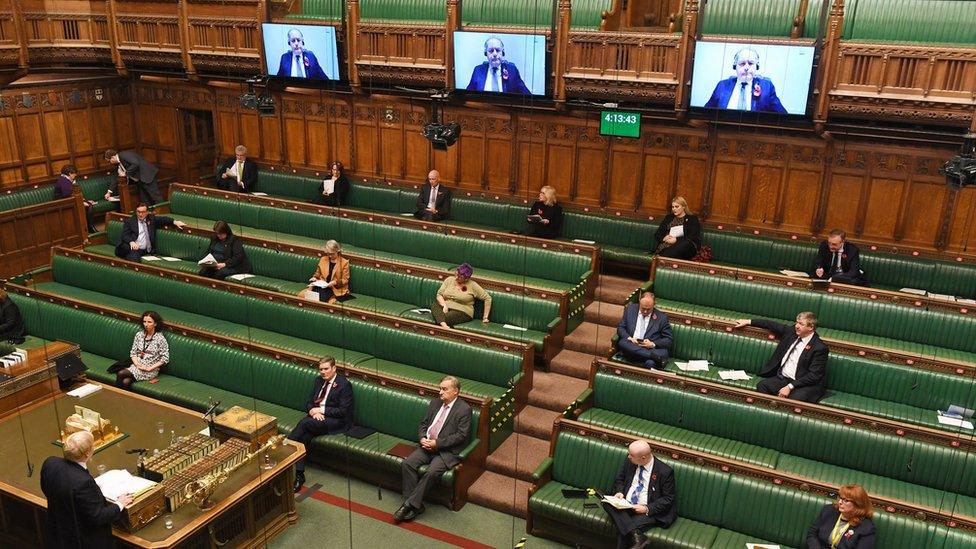Covid-19: Johnson set for virtual appearance in PMQs
- Published

This time it will be the prime minister on the big screen
Boris Johnson will take part in Prime Minister's Questions on Wednesday virtually, Downing Street has said, following his self-isolation.
He will answer questions from Labour leader Sir Keir Starmer and other MPs by video link from No 10, after an agreement with the Commons authorities.
The PM is self-isolating for two weeks after meeting a Tory MP on Thursday who later tested positive for Covid.
He has said he is feeling great and has tested negative for the virus.
The PM's spokesman said Downing Street was taking part in a 'lateral flow' test pilot, similar to those being trialled in schools, universities, care homes and Liverpool.
Despite the negative result, he is continuing to self-isolate in line with the government's rules.
In a video released earlier on Monday, Mr Johnson pledged to make full use of video conferencing tool Zoom and "other means of electronic communication" during his seclusion, due to last until 26 November.
Mr Johnson is continuing his duties as normal, earlier chairing a virtual cabinet meeting.
While virtual questions have become a feature of parliamentary life during the pandemic, Wednesday's PMQs will break new ground,, being the first time either the prime minister or opposition leader has appeared remotely.
The PM is expected to field about 30 minutes of questions from the Cabinet Room in Downing Street.
On Tuesday, ministers vowed to do more to allow MPs unable to be in the Commons chamber in person because they are shielding to participate virtually in all parliamentary business.
At the moment, MPs can put questions to ministers by video link, including during Prime Minister's Questions, but they are not able to contribute to general debates on legislation.
Commons Leader Jacob Rees-Mogg said he would review the current arrangements amid concerns that MPs who are shielding for health or family reasons are being discriminated against.
Mr Johnson was hospitalised for a week in early April after contracting the virus. During his treatment and subsequent convalescence, Foreign Secretary Dominic Raab stood in for him at PMQs.